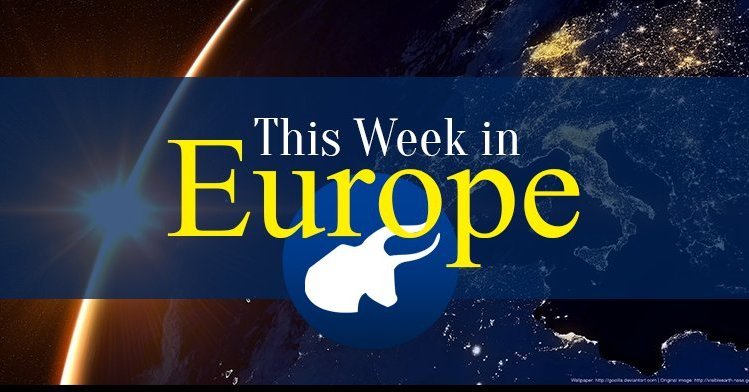Austria backs out of UN migration agreement
On Wednesday, Austrian Chancellor Sebastian Kurz announced that his country will not be joining a United Nations treaty on migration that establishes a common approach to international migration. The Global Compact for Safe, Orderly and Regular Migration treaty is supposed to set procedures to receive migrants, removing pressure from countries with too many newcomers. Kurz argued that the agreement blurs the lines between legal and illegal migration and chips away at Austria’s sovereignty. In July, all 193 U.N. members, except the U.S., agreed to support the treaty, but afterwards, Hungary and Poland showed signs of backing out. In response, European Commission spokesperson Natasha Bertraud stated that the Commission regrets the decision taken by Austria and continues to believe that migration can only be dealt with by countries working together. A day later, Czech PM Andrej Babis also said that he is considering pulling out his country from the deal after discussions with Austrian officials. Central European states thus continue their policy of refusing migrant quotas that they cannot directly control.
Refugee-kicking Hungarian journalist cleared of charges
This week, the Hungarian Supreme Court cleared Petra Laszlo, a camerawoman who kicked refugees live on camera at the Serbia-Hungary border in 2015, of all charges. Petra had been filmed kicking a young girl and tripping a man running with a child in his arms. The event occurred during the height of the migration crisis in Europe, when a number of migrants slipped past Hungarian police officers and broke into Hungarian territory. As the world reacted to Petra’s actions, she was fired from her job and given a three-year probation by lower Hungarian courts for disorderly conduct. This week, however, the Supreme Court maintained that her actions were morally wrong, but that her actions fell in the limits of a minor offence that has already lapsed, and were excused by the fact that she was “in the context of an attack by many hundreds of immigrants.”
Bulgaria breaks passports-for-cash scheme
On Monday, Bulgarian prosecutors announced that they have put a stop to a scam operated by state officials in which thousands of foreigners received Bulgarian passports in exchange for cash. Allegedly, employees of the State Agency for Bulgarians Abroad would take bribes in order to issue fake certificates, granting the foreigners - mainly Ukrainians, Moldovans, and Macedonians - visa-free travel across the EU. The usual rate was €5,000 per certificate, with 30 fake certificates being issued every week. The head of the Agency along with 20 other people have now been arrested. After Bulgaria joined the EU in 2007, numerous people applied for citizenship and sought to prove that they had a Bulgarian ancestor, granting the right to citizenship. About 115,000 people were naturalised in this way, many of whom avoided settling in the country, but moved to richer EU countries - and many of them were criminals that did not even speak Bulgarian.
Governments of Norway and Sweden face pressures
On Friday, Norway’s conservative-led government could finally breathe easy after the Christian Democratic Party, who supported the conservatives in power through parliamentary votes, decided to join its ranks, rather than ally with the center-left. The entire week, Norway’s government was rocked by a declaration of Christian Democratic leader Knut Arild Hareide, who argued that his party should switch to the left and install a center-left government - a move that was opposed by his vice-presidents, which favored the right-wing coalition in power. After a vote in the party, 98 delegates went with the government, while a minority of 90 wanted to join the center-left.
In Sweden, Social Democrat leader Stefan Lofven failed to cobble together a new government - again. Two months after the election now, there is no clear candidate for the position of prime minister. “The possibility does not exist for me to build a government that can be accepted by parliament,” Lofven, who lost a confidence motion last month, told the press. Previously, the center-right Moderate Party also failed to form government. The next attempt might be again handed to Lofven, or given to Center Party leader Annie Loof.
Merkel steps down as leader of CDU
On Monday, German chancellor Angela Merkel said that she would step down as leader of the governing Christian Democratic Union (CDU), a position she has held since 2000, after the party’s heavy losses in the regional elections in Hesse - where it won, but lost more than 10% when compared to its previous score. Merkel plans to remain chancellor until her term ends in 2021, but giving up the helm of the CDU has many analysts arguing that the end of the “Merkel era” is in sight. In giving up power internally, the German Chancellor is also weakened externally, on the European stage, where she has provided direction and stability for more than decade. Settling rumors of a future bid for an EU post, Merkel said that she was not looking for any other political position. In the aftermath of Merkel’s statement, CDU Secretary-General Annegret Kramp Karrenbauer, a close ally of Merkel and a centrist, said she would run to replace her. Health Minister Jens Spahn, a more conservative figure, was also shown willing to run. Friedrich Merz, former leader of CDU in the Bundestag, also wants the top job in the party.
German Niederaussem coal mine shown as Europe’s worst polluter
This week, European Space Agency’s Sentinel 5P satellite, together with research by Greenpeace, showed that the Niederaussem coal plant and mine is Europe’s largest hotspot for Nitrogen Dioxide (NO2) pollution, with London coming up second due to transport emissions. The satellite was able to show unprecedented detail in analyzing NO2 emissions throughout the continent and in the atmosphere. “With new satellite technology, polluters will have nowhere to hide,” argued Greenpeace, “even when regulators are not doing their job.” RWE, the operator of the Niederaussem lignite power plant, rejected the findings, arguing that the Greenpeace study targeted the plant without justification, as the satellite looked at 100 square km at a time, and the region in which the plant is situated has several sources of NO2 emissions. Moreover, RWE told EURACTIV that the plant’s emissions are well below threshold meant to protect the environment and human health. NO2 is closely associated with an estimated 75,000 premature deaths per year across the EU. The Union has placed strict rules on air quality, particularly on Nitrogen Oxide and other pollutants, but 23 out of the 28 national governments were often shown to break the rules.
Skopje-Athens flight marks new detente
For the first time in 15 years, there was a direct flight between the cities of Skopje (capital of Macedonia) and Athens (capital of Greece). Bringing the “air embargo” to an end is a further sign of the determination of the two states to end their long-running dispute over Macedonia’s official name. Greece’s foreign minister, George Katrougalos, hailed the move as bringing the two peoples closer together. In October, Macedonia’s Parliament passed the first measures on changing the country’s name as part of a deal between Macedonia and Greece. As well as easing tensions in the Balkans region, it should help open the path to NATO and EU membership for Macedonia.
Italy’s populists aim to increase childbirth through land distribution
Italy’s government has stated that it wants to put in place measures that would give families land when they choose to have a third child. It hopes that this would combat depopulation in rural areas and the growing tendency of arable land to be abandoned. The policy would run for three years (2019, 2020 and 2021) and only benefit families who reach their third child during that time. The opposition has denounced the idea as “neo-medieval” and the government has declined to explain how affordable it will be.
Denmark accuses Iran of attempted assassination
At a press conference on Tuesday, Denmark’s head of intelligence declared that Iran had attempted to orchestrate the assassination of an opponent of Iran’s government within Denmark itself. Swedish authorities are said to have arrested a Norwegian citizen of Iranian descent on 21st October, who was then extradited to Denmark. The suspect is being held in provisional detention until 8th November, having denied all charges. Danish Prime Minister, Lars Løkke Rasmussen, said that it is “totally unacceptable that Iran or any other foreign state plans assassinations on Danish soil. Further actions against Iran will be discussed in the EU.”


Follow the comments: |
|
